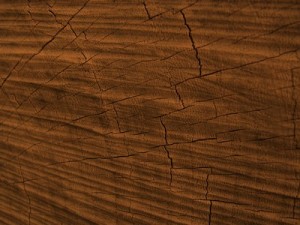Within the turntable community, debate rages as to whether old turntables are superior to their new counterparts. There are a number of points frequently cited by both sides of the argument that will help a buyer choose whether to buy a brand new turntable or an old, vintage turntable.
Fact 1: Old Turntables are Cheaper Than New Turntables
The fact of the matter is that old turntables are almost certainly sonically better than new ones for the price. There are of course exceptions, with turntables with cult followings fetching outrageous prices on eBay. Old turntables will generally be much cheaper than new ones, and can go as low as free if donated by a friend or family member. I have so often jealously read of the yard sale finds of the intrepid Saturday morning warriors and wondered why me? Valuable old turntables unused by grannies since the late 80s, unaware of the true value of their little old record player that will happily part way with it for 20 dollars. In the sub $500 range, old turntables are almost always the winners, because it’s almost impossible to beat the quality of one without spending $500 on a new Rega or Pro-ject.
Things get more difficult to delineate in the upper spending zones. For instance, who wins the battle of Rega P9 vs Linn LP-12? Both are top of the line turntables from completely different eras, and both are on many audiophiles’ wish-lists. The choice will obviously come down to personal taste. When spending a great deal of cash, remember that some turntables may not live up to the legend. It’s difficult to find some old turntables to listen to, but be very wary before jumping in to the 5000 dollar bracket without experiencing it first. High end new turntables are decisively less difficult to find, but Rega P9s are an expensive investment for an industry that runs a fairly tight overhead as a whole. Large cities will have them available for listening somewhere, but even small cities may not have a store that stocks a high end turntable for listening. If making a choice based on the reports of others, the old turntables lose out since returns or swaps are unlikely. However, the look and feel of those old Linns, Pink Triangles and Michell Orbes is something else.
Fact 2: Sound Quality is Subjective.
An old turntable that costs little will probably have better build quality than the cheap, plastic models of today. This superior build quality will result in better sound. When vinyl was the main form of music sold, there was a great deal of competition and consequently, a great incentive for companies to create a turntable that sounded better than the competition. Today, there are fewer players in the market, but Rega, Music Hall and others are ensuring that audiophile level turntables are being churned out on a consistent basis. In fact, vinyl has split in to two fairly distinct groups – the DJs and the audiophiles. Once the Technics SL-1200’s patent wore out in the mid 2000s, the quality of DJ turntables went through the roof. The turntables for audiophiles have become sleek, very modern designs that do a superb job of isolating all of that rumble and producing crystal clear sound. The sound of new turntables is more frequently described as “clear” whereas the sound of old turntables is often described as “warm”. Each turntable differs however, and, as always, try and listen to a table before you buy it.
Fact 3: New Turntables Are More Convenient Than Old Turntables
This is too often overlooked by beginners to the world of turntables. Simply put, each turntable is a bit different. Experienced repairers of old turntables will usually deal with a few brands, or perhaps only one. When dealers deal with multiple brands, those brands often have similarities, such as idler wheel turntable specialists. Turntables are complex pieces of machinery that take time to get to know and experience to get good at repairing. Old turntables that are in reasonably good condition are still a great buy, as there is probably only a little tuning required to get it working good as new again. Old turntables are only getting older though. To make a gross generalisation, the best turntables were made in the earlier part of the turntable era: the 60s and 70s. Consequently, old turntables picked up at estate sales can be 50 or 60 years old. A lot of these turntables, even the well-respected ones, have consistent problems with them that will probably need addressing. For example, a lot of old Duals will need a thorough clean out of gunk because the grease used by Dual was prone to hardening over time – a certainty if the old turntable was not looked after carefully (service manuals should instil great confidence if found with the turntable).
The problem of expertise can often be solved in major cities, even smaller ones. With a simple Google search, a few names should be revealed, although it is worth consulting a phone book as well since some of the folks that repair turntables may be prone to get out of the analog age in multiple regards. Living in a rural area is not an advantage for the not-so-technically-adept, as the chances of finding a repairman are slim to nil. Living in a country that isn’t the USA or UK or Western Europe (pretty much in that order) will make it even harder to get your old turntable repaired, since those countries tend to have a stronger turntable subculture. Mailing a turntable to a repairman is definitely a possibility but can be risky, given that turntables respond poorly to rough handling, and expensive due to the weight of some well built old turntables.
Summary
We think old turntables offer far and away the best bang for buck. They can often be found for peanuts, and if there’s someone around who can fix it up to near-new condition, or if you can do it up yourself, it’ll still produce better sound than a new turntable. New turntables are the ultimate in convenience, and not having to worry about something going wrong and being unable to find a replacement part will make many beginners feel much safer. A turntable’s sound is a subjective experience, and all turntables should be experienced if possible, before being bought. Turntable technology has progressed over the past 20 years though, and current audiophile turntables are superb at producing crystal clear sound. Some old turntables will be a little heavy on rumble, but there are plenty that are built extremely well and run just as good as current generation turntables. Decide for yourself what’s important to you. Both new and old turntables will bring you a great deal of joy and excellent sound quality.



Leave a Reply